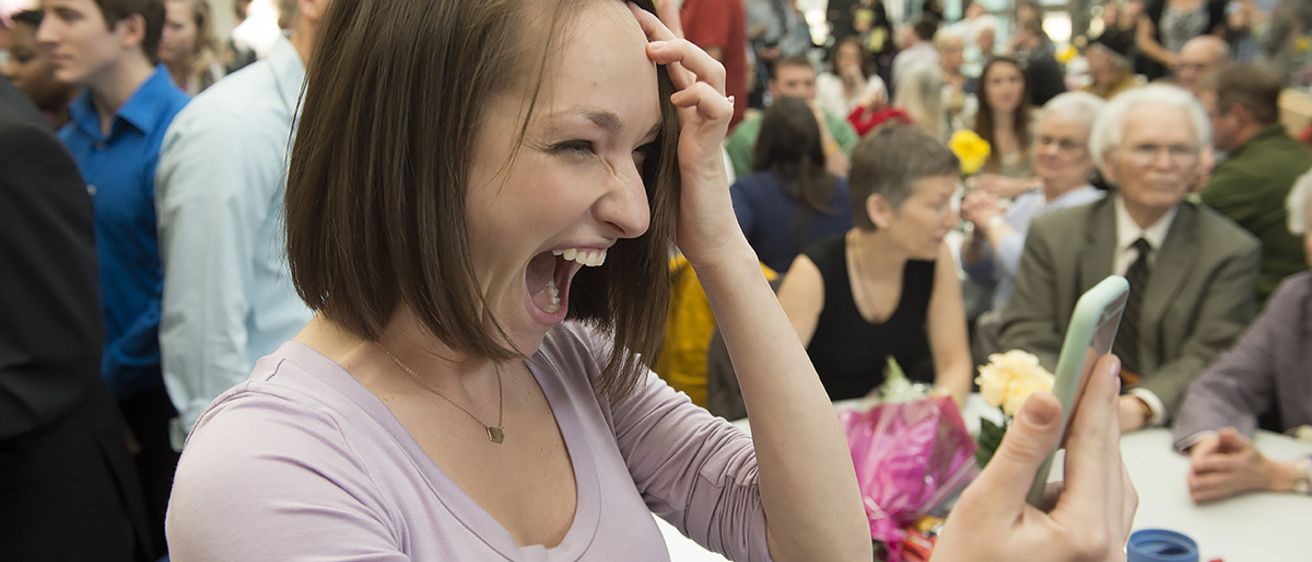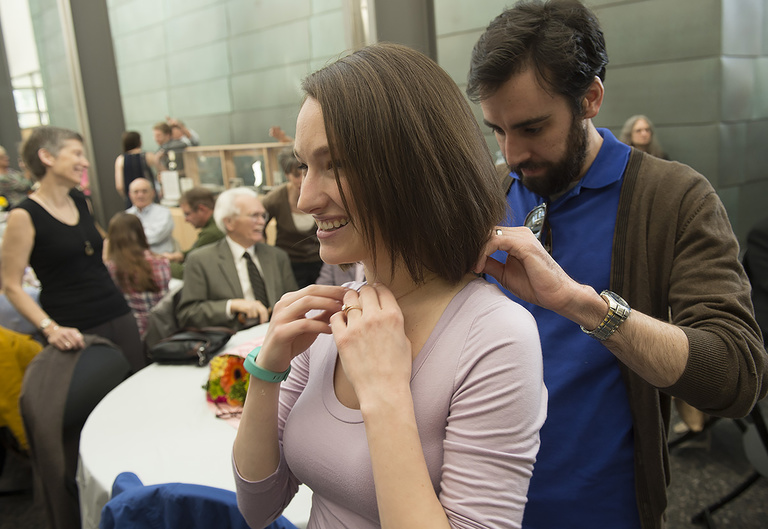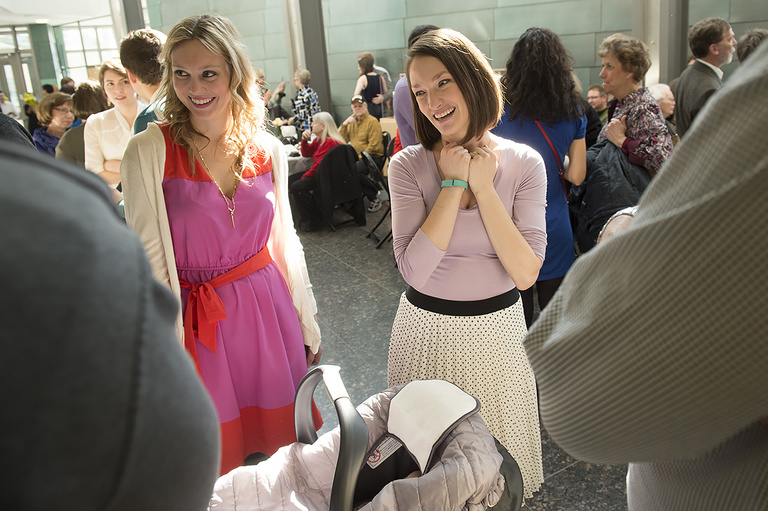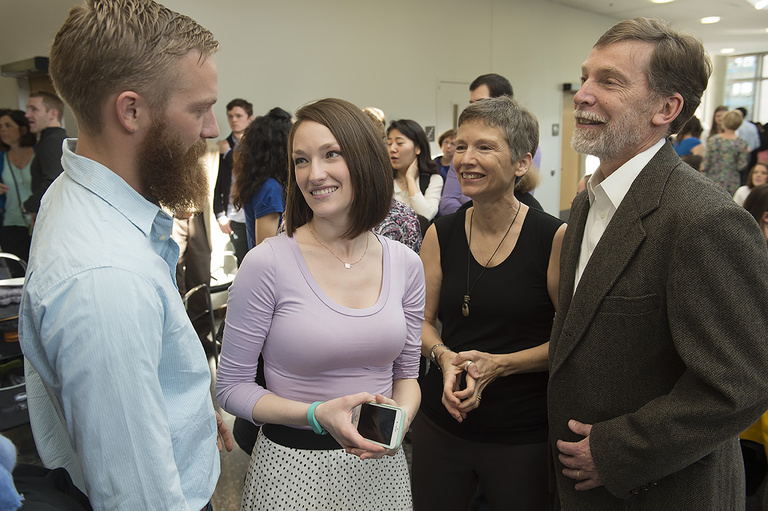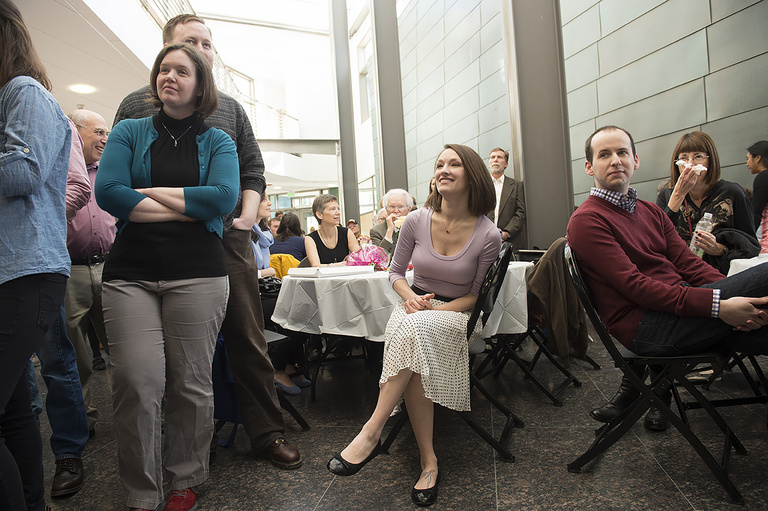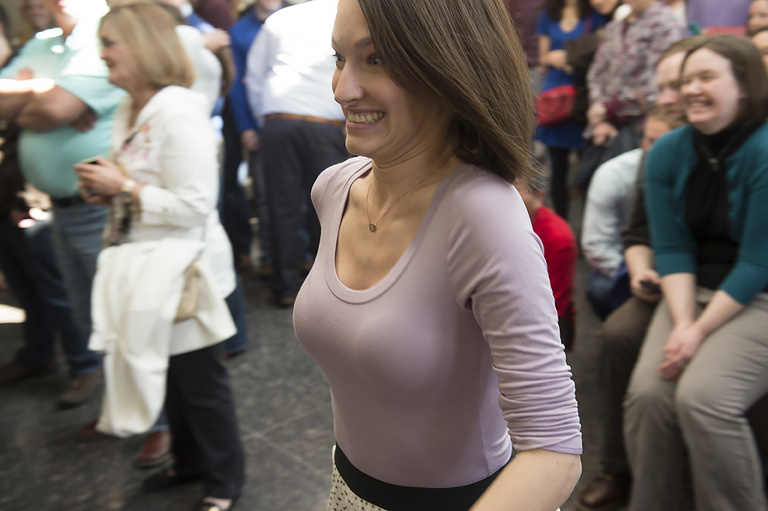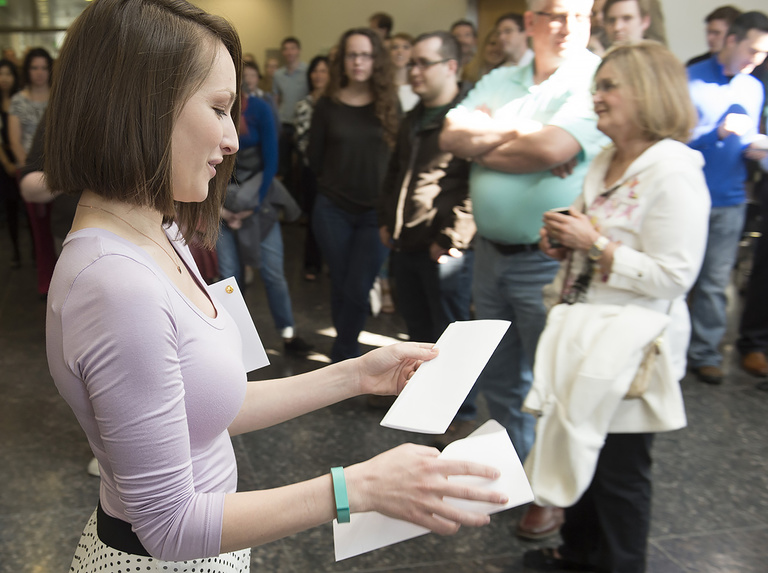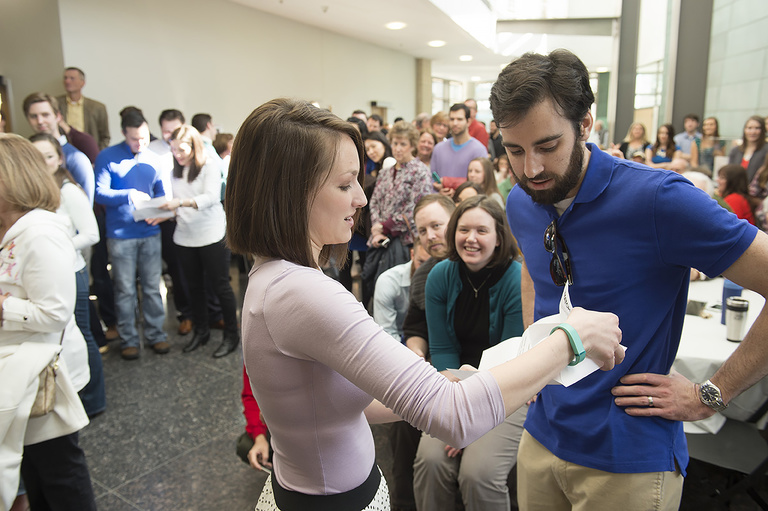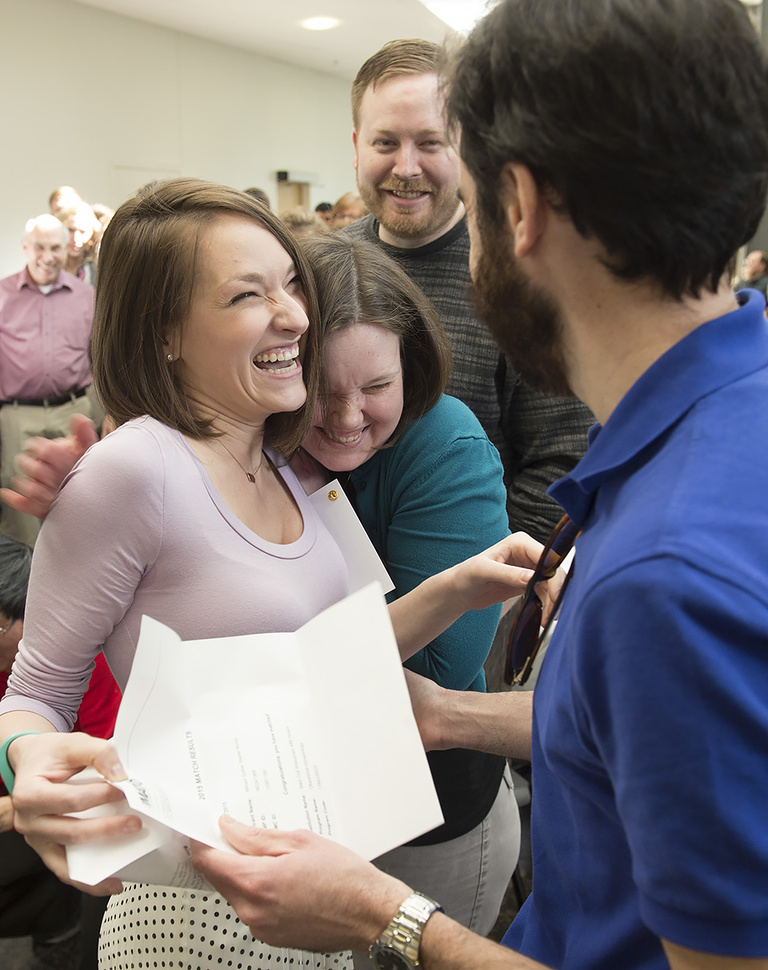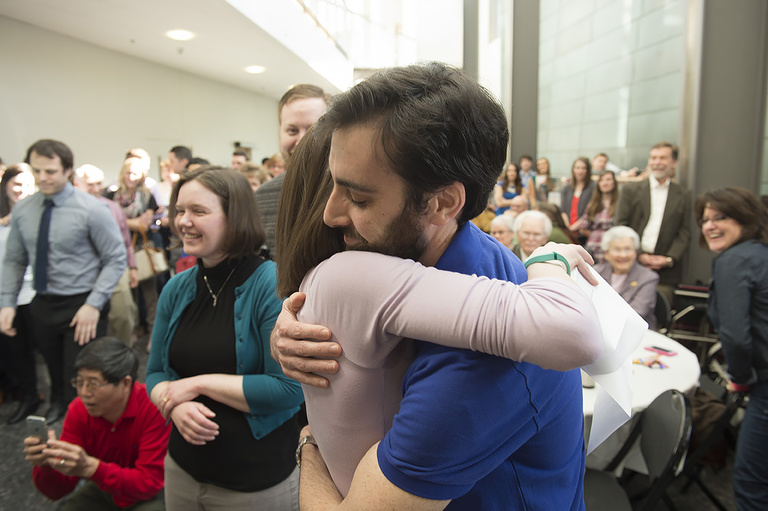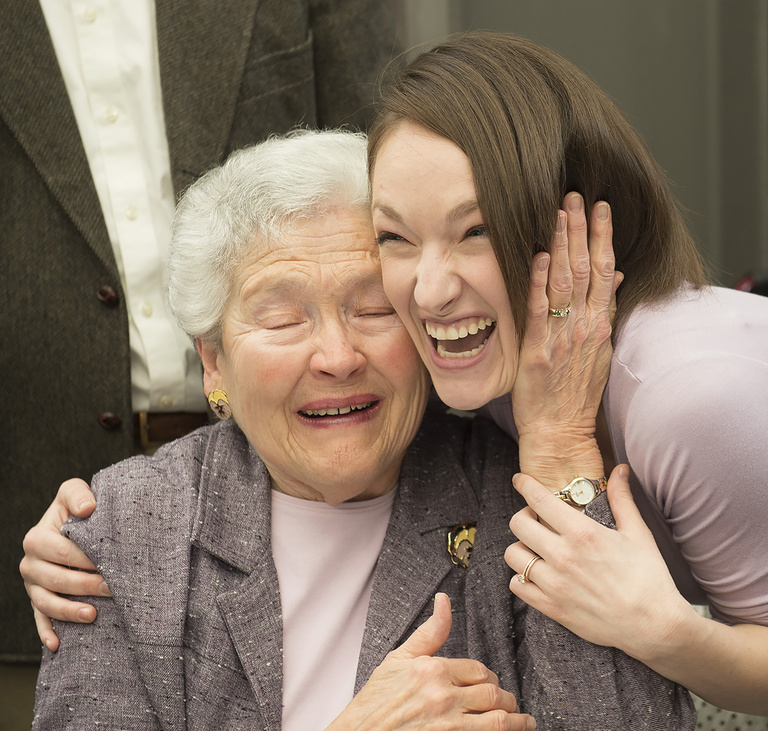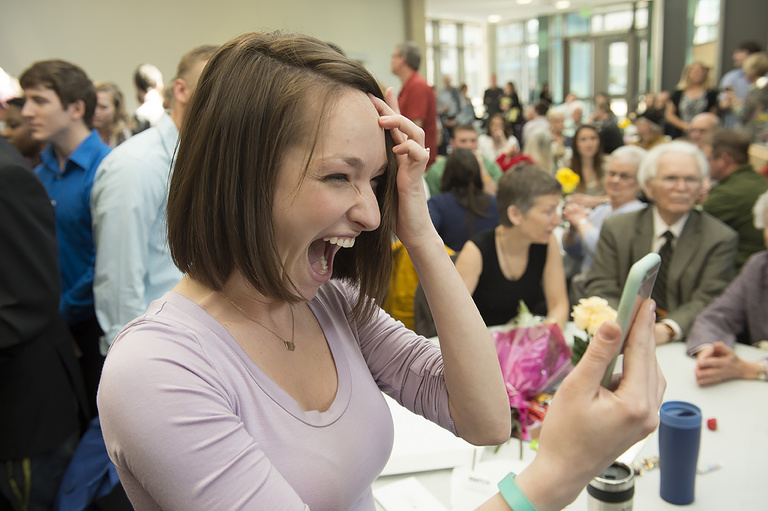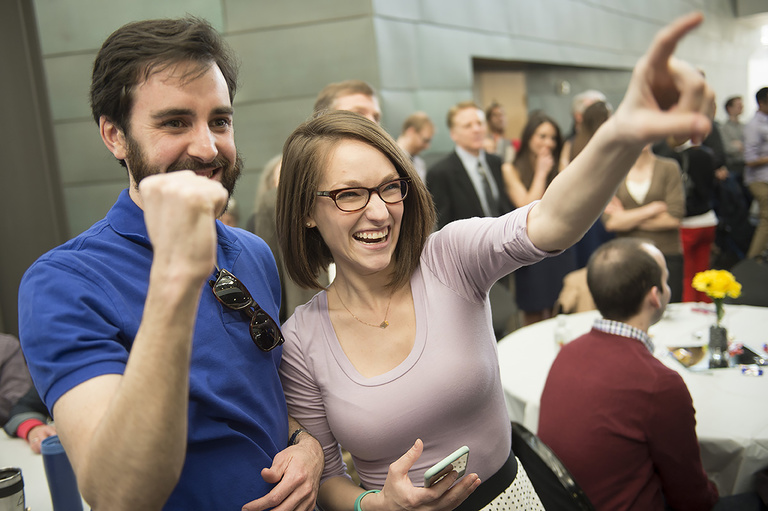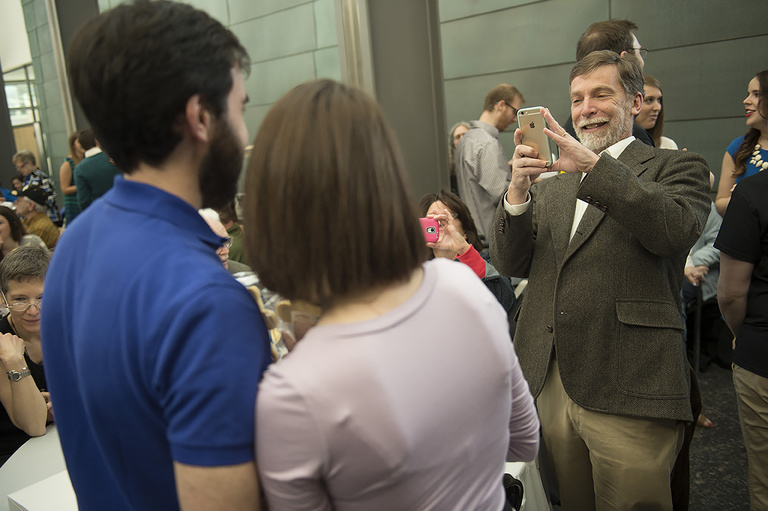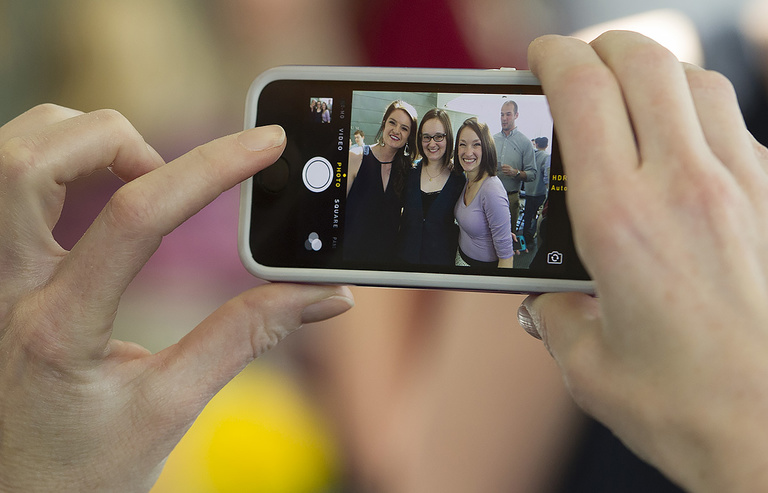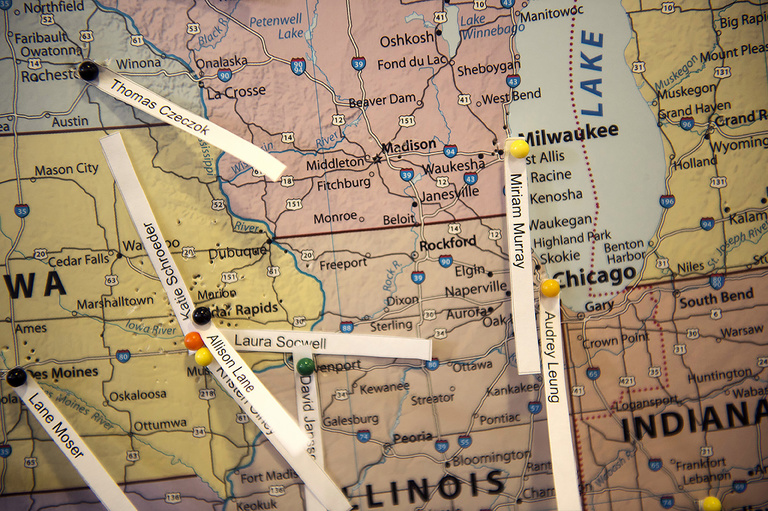Miriam Murray grew up in Iowa City and went to the University of Iowa for both undergraduate school and medical school. Iowa, she says, is in her heart. She’d like to eventually make her career in the state that gave her roots.
With scores of places to choose from across the country, Miriam did name University of Iowa Hospitals and Clinics among her choices for her four-year residency. But she also named places in a few other states, places that would allow her the opportunity to get out and “experience something new,” in a different state with different traditions and different landmarks.
Among this year's graduates, 50 will remain in Iowa for their first year of postgraduate training, and 33 of these 50 students will train next year at UI Hospitals and Clinics.
Her top choice, she said, was the Medical College of Wisconsin in Milwaukee—her husband has family there, and it’s close enough to come home when she wants. Although she learned early in the week that she did match somewhere, her location—as well as those of thousands of medical school graduates around the world – was kept secret until Friday.
Friday, March 20, was Match Day—the day when more medical school graduates around the world learned where they would be doing their residencies. The students created a field of hospitals and centers where they’d like to work, interviewed at many of them, and then ranked them according to their preference, according to the National Residency Matching Program (NRMP).
Directors of residency programs at institutions around the globe created a similar list—theirs ranking the candidates according to the program’s preference. The lists of both the candidates and the programs are entered into a computer, and an algorithm creates a “match,” putting candidates with programs.
There are UI-trained physicians in 88 Iowa counties.
Half of all the practicing physicians in Iowa received some or all of their medical training at the University of Iowa.
Though students learned the Monday before Match Day whether they’d matched at all—those who didn’t match were given the week to scramble to find a program—the envelopes containing the student’s name and their matched program weren’t handed out until 11 a.m. central time on Friday. Medical school around the world distributed their matches at the same time.
Murray didn’t have to wait long for her name to be pulled from the rolling tumbler of envelopes. She carried her envelope back to her family and opened it. The squeal and jump as she unfolded the paper inside said it all: She got her top pick.
“I’m so excited, this is exactly what I wanted,” she says. “It’s going to be really fun, for some reason, because my husband has family there, so he’ll get to see them more often.”
“I was really hoping this is where I’d go, but you never know,” she says.
About Match Day at UI’s Carver College of Medicine:
Among this year's graduating class of 154 students, 49 percent (76 students) chose primary care specialties, which include family medicine, internal medicine, obstetrics and gynecology, and pediatrics. There were 20 matches in family medicine programs, 26 in internal medicine, 9 in obstetrics and gynecology, and 21 in pediatrics.
Among this year's graduates, 50 will remain in Iowa for their first year of postgraduate training, and 33 of these 50 students will train next year at UI Hospitals and Clinics.
Geographically, the most popular state after Iowa for first-year training was Wisconsin, with 12 graduating students beginning their residencies there. California will receive 11 UI graduates, and Illinois will receive 6.
This year's match results, including individual results by name, state, and specialty, are available at this website:
The National Residency Matching Program (NRMP) helps place graduating medical students in such programs. Most of the students who will earn medical degrees at the UI this year (152 of the 154 students) participated in the NRMP. Two students secured their residency through the armed forces.
In the past, students who didn’t match on the Monday of Match Week were given an opportunity to find a match outside their list of preferences, but that no longer happens, according to Damien Ihrig, registrar for the Carver College of Medicine.
“The NRMP and the AAMC Electronic Residency Application Service jointly provide the Supplemental Offer and Acceptance Program during Match Week for students who partially matched or who didn’t match at all,” he says.
Ihrig said the number of graduates pursuing careers in primary care is up this year from last year, when 40 percent went into primary care.
“We’re always happy to see more of our students choosing primary care,” he adds.
